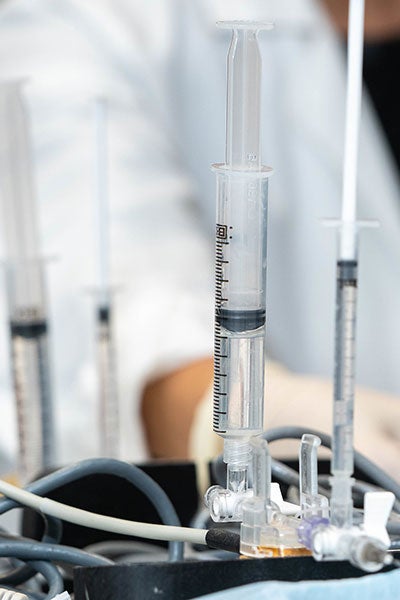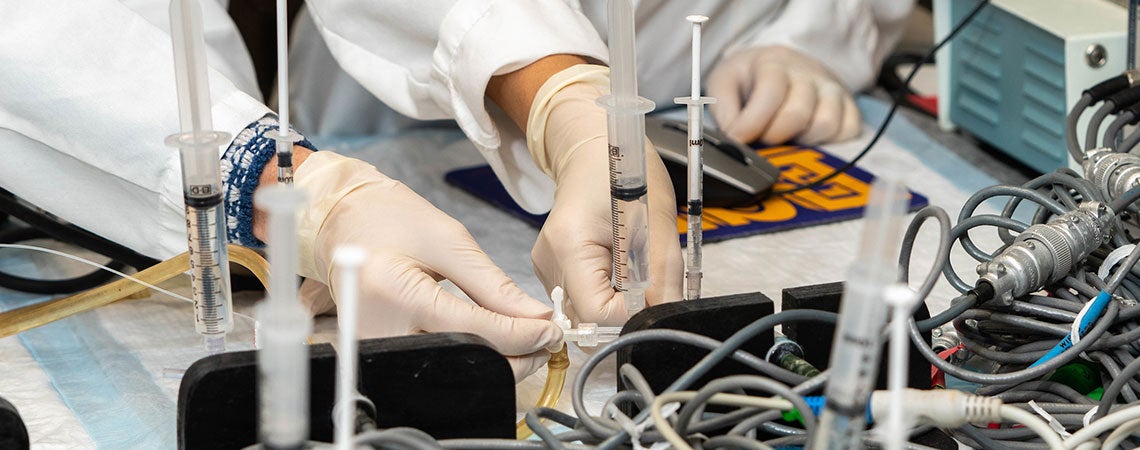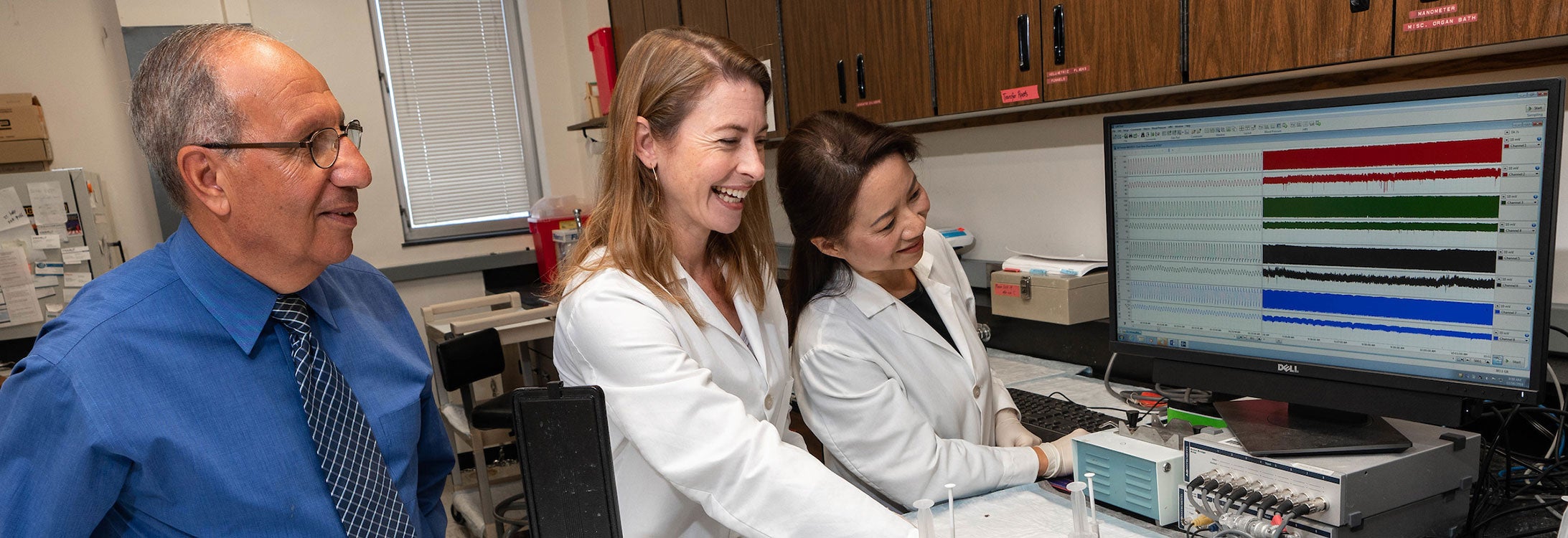DRINKING AND YOUR HEART
Brody lab tackles impact of alcohol on cardiac function
Alcohol can have significant negative effects on cardiac function, especially in women, according to the research of Dr. Abdel Abdel-Rahman, vice chair of the Department of Pharmacology and Toxicology in the East Carolina University Brody School of Medicine.
For decades, Abdel-Rahman’s lab has focused on the biology of the cardiovascular system and the interaction between the heart, hormones and the central nervous system. His current project examining the impact of alcohol on cardiac function began in 2004 and has just been renewed for an additional five years of funding — to the tune of almost $2 million — from the National Institutes of Health.
“We started years ago to hear about alcohol — the benefits of moderate drinking, the bad effects of heavy drinking,” said Abdel-Rahman. “So we went into this research asking the question, ‘What impact does alcohol have in this interaction between the brain and the heart?’”
Early findings showed that alcohol compromises the brain’s ability to tolerate changes in blood pressure.
“That will cause blood pressure to go up and lead to what is called alcohol-induced hypertension,” Abdel-Rahman said. After studying the molecular mechanisms of that effect, the researchers decided to look into whether their findings would be applicable in human subjects.

The project recently received a five-year extension of NIH funding.
That’s where things began to get interesting, said Abdel-Rahman. “We were looking at before alcohol and after alcohol. After alcohol we saw most of what we were seeing in the lab. But before alcohol we were seeing some differences.”
It turned out that there were significant baseline differences between men and women in the study.
“It turned out that women have reduced sympathetic tone; they have higher heart rate and lower blood pressure by nature,” he said. Back in the lab, the researchers found that these gender-based differences were influenced by estrogen — without it, results between the genders were similar.
“Then came the question of alcohol again,” Abdel-Rahman said. Most research on the effects of alcohol had been done on men because they historically were heavier drinkers. But women are catching up with men’s drinking habits.
The next finding was a surprise — in female rats, blood pressure didn’t go up with alcohol; it went down. “I was really excited,” said Abdel-Rahman. “That would mean alcohol was good for women, kind of protective. But then we had to ask, ‘What is the reason for the lowering in the blood pressure?’ If the reduction in blood pressure is due to reduction in the resistance of the blood vessels, then that’s good physiologically. If the reduction in blood pressure is due to a reduction in cardiac function, that’s definitely not good.”
It turned out that the reduction in blood pressure came at the expense of reduced cardiac function. So with moderate amounts of alcohol, the study showed little net effect on cardiac function in males but reduced cardiac function in females. Without estrogen, the difference diminished.
The next five years of the project looked at why alcohol had more impact on cardiac function in females than males. One factor is that the enzymes related to estrogen increases the metabolism of alcohol into acetaldehyde, which is more cardiotoxic than alcohol.
Continued research on the subject has examined the interactions between alcohol and estrogen as female physiology changes throughout the reproductive cycle and after menopause. The next five years will look at an even shorter cycle — the daily circadian rhythms of the human body.
“Our biology is different during the evening, during the night, at different times of day,” said Abdel-Rahman. “That can influence our behavior and our cardiac function. The circadian rhythm affects the biology of the enzymes … so it can affect the impact of alcohol on cardiac function.”
Abdel-Rahman said the research will improve the scientific understanding of the negative impact of alcohol and the mechanisms of those adverse effects. It could also lead to treatments for cardiac diseases.
Abdel-Rahman credited many partners for the long-term success and funding of the project, from collaborators in other departments to his lab manager, Kui Sun, and the graduate students in his lab, for whom he said the research and the funding process provide invaluable experience.
The students write their own proposals for related projects, helping them learn the process of applying for and executing grant projects.
As for the detrimental effects of alcohol on the heart, Abdel-Rahman said women — and young women in particular — need to be especially aware of the adverse cardiac effects of alcohol.
“The easiest solution is for women to reduce their alcohol intake because no matter what you do, there will be negative effects of alcohol on the cardiovascular system,” he said. “We’re not just talking about binge drinking; we’re talking about moderate amounts.
“The heart can correct itself in the short term but in the long term it can lead to serious effects.”

The lab’s goal is to better understand the mechanisms by which alcohol impacts cardiac function and the role of estrogen in the process.
